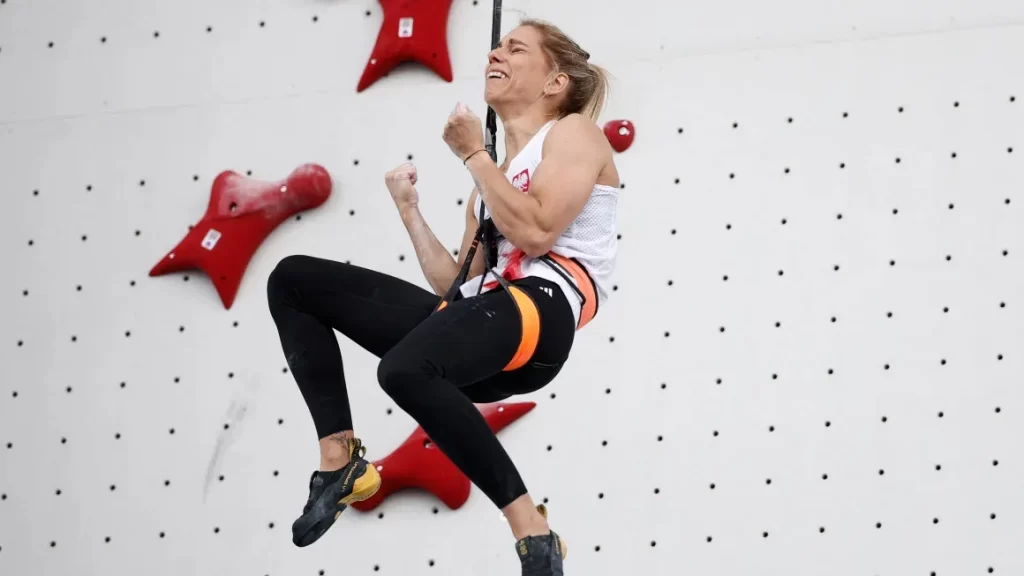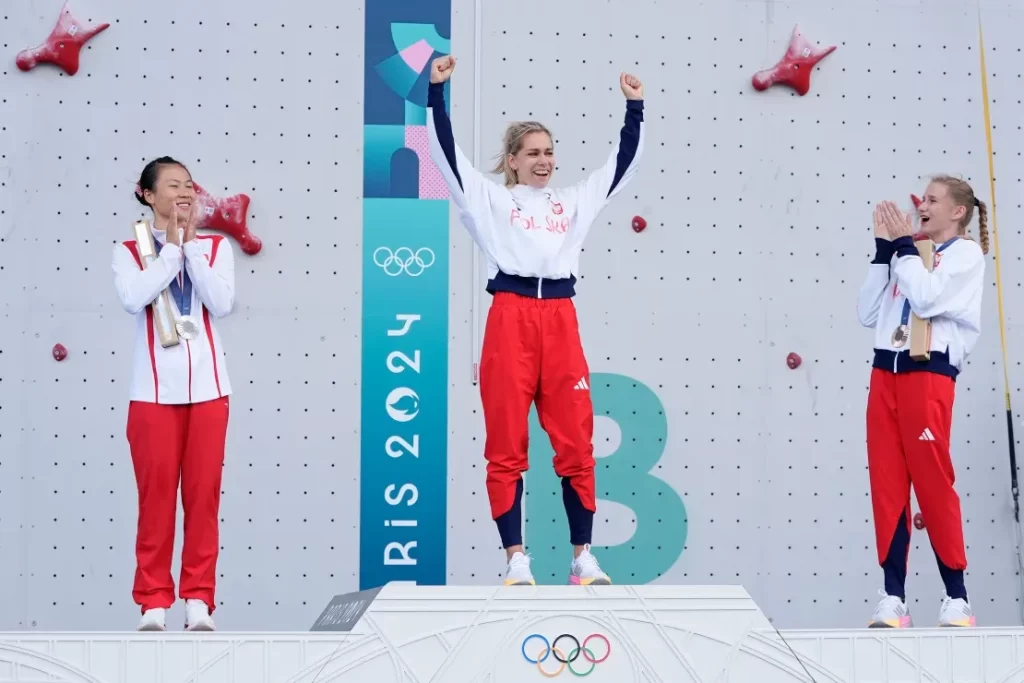
Aleksandra Mirosław: First-Ever Speed Climbing Gold Medalist
Aleksandra Mirosław stood poised at the base of a 15-meter climbing wall, waiting for the three pips of a buzzer to signal the start of her race. In just six seconds, she became the first-ever Olympic champion in the sport of speed climbing, defeating China’s Deng Lijuan in the final. Mirosław described the victory as a “dream come true moment,” expressing immense pride and joy at her historic achievement.
A Historic Victory
Winning the first gold medal in speed climbing history, Mirosław’s accomplishment is monumental, not just for her but for the sport itself. Reflecting on the significance of her win, she stated, “It’s the first [gold medal] in history, so it’s really awesome. I’m really happy and really proud of myself. It will be with me forever.” This landmark victory marks a significant milestone in her career and for Poland, earning their first gold medal of the Paris Olympics.
Speed Climbing’s Olympic Debut
When climbing made its Olympic debut in Tokyo three years ago, it included three disciplines: lead, bouldering, and speed. The format changed in Paris, with speed climbing now awarded its own set of medals. This alteration benefitted athletes like Mirosław, who excel in speed climbing. Despite setting a world record in Tokyo, Mirosław finished just outside of the medals in fourth place. The new format in Paris allowed her to fully showcase her specialization and skill.
Mirosław’s Dominance
The temporary wall erected in the Parisian suburb of Le Bourget provided Mirosław a perfect platform to shine. She emphasized her focus on speed climbing, a discipline she has dedicated herself to exclusively, never having specialized in bouldering or lead. Competing against the world’s fastest climbers, Mirosław set a new world record in the final, continuing her streak of breaking records and cementing her dominance in the sport.
Setting the Pace
Mirosław has consistently set the pace in speed climbing, breaking the world record ten times throughout her career. Her latest record of 6.06 seconds, set in the early rounds of the Olympic competition, was faster than her winning time in the final against Deng. As the discipline’s times continue to get quicker, a sub-six-second record seems increasingly within reach, demonstrating the ever-evolving nature of the sport and Mirosław’s relentless pursuit of excellence.

Facing Challenges
In the semifinals, Mirosław faced a formidable opponent in her Polish teammate, Ola Kałucka. She emerged victorious by a slim margin of 0.15 seconds, highlighting the competitive nature and depth of talent within the Polish team. Kałucka went on to win a bronze medal, defeating Indonesia’s Rajiah Sallsabillah in the third-place race, known as the “small final,” showcasing her own remarkable skills and perseverance.
Kałucka’s Perspective
Kałucka, who qualified for Paris ahead of her twin sister, expressed her gratitude for the expanded format in Paris, which essentially created an extra medal event. She acknowledged the audience’s preference for speed climbing, contrasting it with lead climbing and bouldering, which require different sets of skills. “The audience likes speed climbing, I think,” she said. “Lead climbing and bouldering, it’s completely different to speed climbing. I’m so grateful that we are separating our disciplines. It’s a completely different activity.”
The Nature of Different Climbing Disciplines
The distinctions between the climbing disciplines are significant. In lead climbing, athletes have six minutes to climb as high as they can on a 15-meter wall, clipping their rope to checkpoints along the way. Bouldering involves solving four “problems” on a 4.5-meter wall within a time limit, without prior knowledge of the wall setup. Combining boulder and lead into one medal event, as was done at these Olympics, poses unique challenges, especially for specialist speed climbers like Mirosław and Kałucka.
The Future of Climbing at the Olympics
With huge crowds and a lively atmosphere at Le Bourget’s temporary facility, it looks like climbing is a hit with fans and is here to stay at the Olympics. Both Mirosław and Kałucka appreciate the separation of disciplines, with Mirosław proudly stating, “It means a lot, the first time for speed climbing and also for me here in the discipline.” She cherished the moment of standing on the podium, hearing the national anthem, and waving her flag, marking an unforgettable achievement in her career.
Conclusion
Aleksandra Mirosław’s journey to Olympic gold is a testament to her dedication, skill, and passion for speed climbing. Her historic win not only marks a personal triumph but also elevates the sport to new heights on the global stage. As climbing continues to evolve and gain popularity, Mirosław’s legacy as the first-ever Olympic champion in speed climbing will inspire future generations of climbers to reach for their own dreams and set new records.(PHWIN)